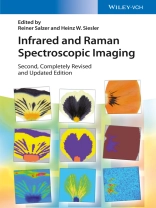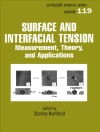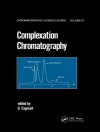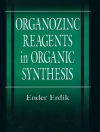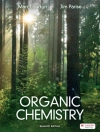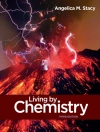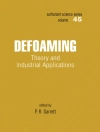This second edition of the successful ready reference is updated and revised with approximately 30% new content to reflect the numerous instrumental developments and improvements, as well as the significant expansion of this rapidly developing field. For example, the combination of IR imaging with AFM has enhanced the achievable lateral resolution by an order of magnitude down to a few hundred nanometers, thus launching a multiplicity of new applications in material science. Furthermore, Raman and IR spectroscopic imaging have become key technologies for the life sciences and today contribute tremendously to a better and more detailed understanding of numerous biological and medical research topics.
The topical structure of this new edition is now subdivided into four parts. The first treats the fundamentals of the instrumentation for infrared and Raman imaging and mapping and an overview on the chemometric tools for image analysis. The second part describes a wide varie-ty of applications ranging from biomedical via food, agriculture and plants to polymers and pharmaceuticals. This is followed by a description of imaging techniques operating beyond the diffraction limit, while the final part covers special methodical developments and their utility in specific fields.
With its many valuable practical tips, this is a must-have overview for researchers in academic and industrial laboratories wishing to obtain reliable results with this method.
Inhaltsverzeichnis
Preface
PART I: Basic Methodology
INFRARED AND RAMAN INSTRUMENTATION FOR MAPPING AND IMAGING
Introduction to Mapping and Imaging
Mid-Infrared Microspectroscopy and Mapping
Raman Microspectroscopy and Mapping
Near-Infrared Hyperspectral Imaging
Raman Hyperspectral Imaging
Mid-Infrared Hyperspectral Imaging
Mapping with Pulsed Terahertz Radiation
Summary
CHEMOMETRIC TOOLS FOR IMAGE ANALYSIS
Introduction
Hyperspectral Images: The Measurement
Image Preprocessing
Exploratory Image Analysis
Quantitative Image Information: Multivariate Image Regression (MIR)
Image Segmentation
Image Resolution
Future Trends
PART II: Biomedical Applications
VIBRATIONAL SPECTROSCOPIC IMAGING OF SOFT TISSUE
Introduction
Preparation of Soft Tissue for Vibrational Spectroscopic Imaging
Applications to Soft Tissue
Conclusions
VIBRATIONAL SPECTROSCOPIC ANALYSIS OF HARD TISSUES
Introduction
Importance of Tissue Age versus Specimen Age
FT-IR Spectroscopy
Raman Spectroscopy
Clinical Applications of Raman Spectroscopy
MEDICAL APPLICATIONS OF INFRARED SPECTRAL IMAGING OF INDIVIDUAL CELLS
Introduction
Methods
Results and Discussion
Future Potential of SCP/Conclusions
PART III: Agriculture, Plants, and Food
INFRARED AND RAMAN SPECTROSCOPIC MAPPING AND IMAGING OF PLANT MATERIALS
Introduction, Background, and Perspective
Application of Mapping and Imaging to Horticultural Crops
Application of Mapping and Imaging to Agricultural Crops
Mapping and Imaging of Wild Plants and Trees
Application of Mapping and Imaging to Algae
Interaction Between Plant Tissue and Plant Pathogens
NIR HYPERSPECTRAL IMAGING FOR FOOD AND AGRICULTURAL PRODUCTS
Introduction
HSI as a ‚Super‘ NIR Analyzer
NIR HS Imager as a ‚Super‘ Vision System
Conclusion
PART IV: Polymers and Pharmaceuticals
FT-IR AND NIR SPECTROSCOPIC IMAGING: PRINCIPLES, PRACTICAL ASPECTS, AND APPLICATIONS IN MATERIAL AND PHARMACEUTICAL SCIENCE
Introduction
Instrumentation for NIR and FT-IR Imaging
Applications of FT-IR and FT-NIR Imaging for Polymer Characterization
NIR Imaging Spectroscopy for Quality Control of Pharmaceutical Drug Formulations
FT-IR Spectroscopic Imaging of Inorganic Materials
FT-IR IMAGING IN ATR AND TRANSMISSION MODES: PRACTCAL CONSIDERATIONS AND EMERGING APPLICATIONS
FT-IR Imaging: Introduction
FT-IR Imaging: Technical Considerations
Practical Applications
Conclusion and Outlook
TERAHERTZ IMAGING OF DRUG PRODUCTS
Introduction
Low Wavenumber Region in the Infrared Spectrum
THz-TDS Technology and Applications
THz Imaging in the Pharmaceutical Industry
Going Forward
Competition versus Cost: A Challenge for the Future
Conclusion
PART V: Imaging Beyond the Diffraction Limit
SPECTROSCOPIC IMAGING OF BIOLOGICAL SAMPLES USING NEAR-FIELD METHODS
Tip-Enhanced Raman Scattering (TERS)
Detection of Biomolecules
Biopolymers
Membranes, Viruses, and Bacteria
Conclusion
INFRARED MAPPING BELOW THE DIFFRACTION LIMIT
Introduction and Description of Early Work
Near-Field Microscopy by Elastic Scattering from a Tip
PART VI: Developments in Methodology
SUBSURFACE RAMAN SPECTROSCOPY IN TURBID MEDIA
Introduction
Techniques for Deep Noninvasive Raman Spectroscopy
Examples of Application Areas
Conclusions
NONLINEAR VIBRATIONAL SPECTROSCOPIC MICROSCOPY OF CELLS AND TISSUE
Introduction
Principles of Nonlinear Optical Imaging
Instrumentation for Multimodal Nonlinear Microscopy
Applications
WIDEFIELD FT-IR 2D AND 3D IMAGING AT THE MICROSCALE USING SYNCHROTRON RADIATION
Introduction
Optical Evaluation
Mathematical Evaluation of Hyperspectral Cubes
Widefield versus Raster Scanning Geometries
Examples
Conclusions
Index
Über den Autor
Reiner Salzer is Professor Emeritus of Analytical Chemistry at the Dresden University of Technology (Germany). He has authored almost 300 publications and serves on various national and international scientific boards. Professor Salzer is a member of the Norwegian Academy of Science and a recipient of the Emich Plaque of the Austrian Society of Analytical Chemistry. Recently he also received the Clemens Winkler Medal of the GDCh (German Chemical Society), the Hanus Medal of the Czech Chemical Society and the Ioannes Marcus Marci Medal of the Czech Spectroscopic Society. Professor Salzer served as President of the Division Analytical Chemistry of the GDCh and is National Delegate to the Division Analytical Chemistry of Eu Che MS, where he is Head of the Study Group Education. He is Chairman of the ECTN Label Committee for the Quality Eurolabels in Chemistry Education.
Heinz W. Siesler is Professor Emeritus of Physical Chemistry at the University of Duisburg-Essen (Germany). After receiving his Ph D in chemistry from the University of Vienna (Austria), he worked as a postdoctoral fellow at the University of Cologne (Germany) and as a lecturer at the Witwatersrand University (Johannesburg, South Africa). Prior to his academic position, he gained industrial experience as section
head in molecular spectroscopy and thermal analysis in the Corporate R&D Department of Bayer AG (Dormagen, Germany). Between 1992 and 2010 he held guest professorships in France, Japan, and Austria. Professor Siesler is a recipient of the EAS Award, the Tomas Hirschfeld Award and the Buechi Award in near-infrared spectroscopy and he is a Fellow of the Society for Applied Spectroscopy. His main research focuses on the application of vibrational spectroscopy to chemical and polymer research, analysis and quality control, and he has authored more than 230 publications in this field.
